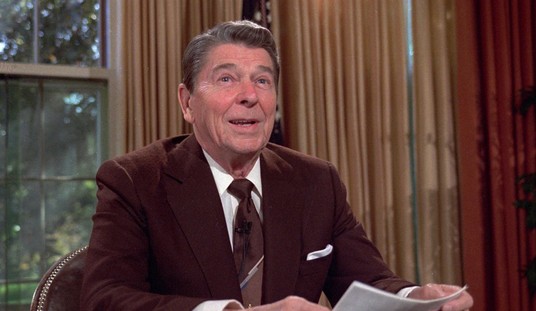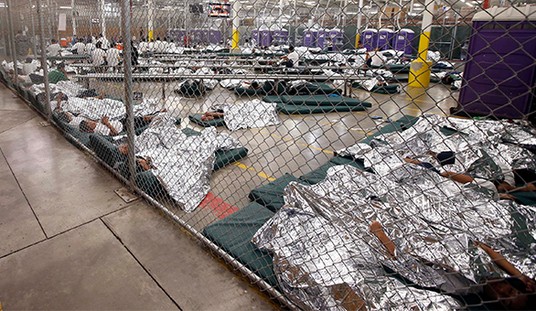One of the most interesting passages in the “Report of the Commission on the Intelligence Capabilities of the United States Regarding Weapons of Mass Destruction” is this confession of American vulnerability.
A wide range of intelligence activities are used to attack systematically U.S. national security interests worldwide. Yet while our enemies are executing what amounts to a global intelligence war against the United States, we have failed to meet the challenge. U.S. counterintelligence efforts have remained fractured, myopic, and only marginally effective.
That is almost certainly the sense in which Walter Russell Mead asks whether Pakistan is at war with the US. “The United States government believes it has evidence linking the Haqqani network, a terrorist organization which has repeatedly carried out attacks against US government personnel and positions, with the government of Pakistan.” Maybe before Haqqani the network of choice was “al-Qaeda”.
Today “war” is less to do with armies of millions marching across borders than with skilled operators backed by millions of dollars. What the Pakistanis might have done is take over the Saudi connection built during the anti-Soviet campaign in Afghanistan and turn it to their own purposes. Then they could wage “intelligence war” on the United States. The public wouldnt necessarily know. As the WMD Commission report concluded the man on the street would probably only find out when the attack was already under way.
Today, we mostly wait for foreign intelligence officers to appear on our doorstep before we even take notice. The lion’s share of our counterintelligence resources are expended inside the United States despite the fact that our adversaries target U.S. interests globally. Needless to say, the result is that we are extremely vulnerable outside of our borders. …
The sum total of these foreign intelligence efforts is striking. During the Cold War, every American national security agency—with the possible exception of the Coast Guard—was penetrated by foreign intelligence services. Moreover, in just the past 20 years CIA, FBI, NSA, DIA, NRO, and the Departments of Defense, State, and Energy have all been penetrated. Secrets stolen include nuclear weapons data, U.S. cryptographic codes and procedures, identification of U.S. intelligence sources and methods (human and technical), and war plans. Indeed, it would be difficult to exaggerate the damage that foreign intelligence penetrations have caused.
Some of that juice is certainly going to manifest itself in lobbying and political influence peddling. Indeed, the most fertile ground for “intelligence war” will be in Washington DC itself. Here the potential leverage is greatest, mostly by affecting the form in which “policy questions” are posed. If the questions are phrased right so that all the answers lead nowhere then America might not even recognize it had an enemy at all, except for a bunch of people it has wronged and ought to feel sorry for. If intelligence operations were correctly designed then 9/11 might in memory become just another tragedy, like a car accident, only bigger.
If that almost sounds like the Middle East as much as Southwest Asia was engaged in intelligence war maybe it is because the shoe fits the foot. Framing the question pre-determines the relevant answer. Consider the question of who America’s friends and enemies are to begin with.
Lee Smith in Tablet Magazine notes that President Obama’s “sophisticated policy” towards Israel has created a gap through which the Palestinian state is now going to slip. The US promises to veto a UN vote to recognize Palestine, but the mere fact it has gotten so far has now created a slippery slope down which some future politician is going to tumble down. And that probably means trouble. It may mean future war. And yet it all began with framing the question.
The most important function that Israel performed in the Middle East was to serve as a scapegoat upon which to vent political dissent within the repressive countries in the region. It was the “far enemy” that regional dictators used to distract their populations so that they would forget the “near enemy”.
Smith writes that when “Obama came to office with the idea that what mattered was not the game but real movement on the peace process, resulting in the establishment of a Palestinian state” he played completely in to the hands of the authoritarians. He might have thought that removing the “root cause” of Arab scapegoating promote regional peace. But he miscalculated.
He gave them the scapegoat they so desperately needed now when they need it most. Every state in the region is in a condition of turmoil — except Israel — and the need for an outlet has never been so pressing. Now the tottering regimes can now adopt the Palestinian recognition cause as their new “frontline” issue of the day. As Smith writes:
With the arrival of the Arab Spring, Washington’s experts were proven decisively wrong. As the Arab Spring turns into a long, hot summer, shaken rulers like Bashar al-Assad of Syria, the mullahs in Iran, and their clients in Lebanon will also look to stir up trouble for Israel in the hopes of distracting their people from the problems at home.
Assuming that both Pakistan and the authoritarian countries of the Middle East have been waging an intelligence war on the US, then they would have wanted this outcome. September 11, the attacks on US embassies, the assaults on Indian cities and parliaments, have had negligible military effect but they created vast political opportunities. We can surmise that this is probably true, but the evidence is sadly wanting.
The media (once called the “press”) was supposed to Americas defense against foreign political intelligence operations. The media is not only the open source world’s main “intelligence agency”, but also its main counterintelligence organ. But if it has performed poorly as the former, it has worked even worse in the latter role. While the blogosphere is full of screeds inveighing against the MSM’s spinning of the news narrative, relatively less has been written about what it does not choose to investigate. And yet it is in what it does not attempt to cover, rather than what it covers poorly where the media’s main failure may be.
Although we can deduce that a very active political intelligence war is probably being waged by foreign powers in Washington DC you almost never hear the press write about it. That is either because it does not really exist or simply because these questions are not asked. If history is any guide, the revelations will come from foreign correspondents who will run into foreign operatives eager to talk about what no one will believe exists. Or perhaps it will come from declassified documents far the future. Traditionally, it is sources from the other side rather than internal security investigators who reveal the presence of hostile operations.
It was the Venona transcripts, derived from signals intercepts for example, that ultimately showed Julius Rosenberg to be a spy and indicated that many of Joseph McCarthy’s accusations were in fact true. The public never learned the truth from the Government during the Cold War. They didn’t learn the truth from the media either. Wikipedia describes the effect of information starvation on the politics of the Cold War. Each side was left secure in its own convictions.
The dearth of reliable information available to the public—or even to the President and Congress—may have helped to polarize debates of the 1950s over the extent and danger of Soviet espionage in the United States. Anti-Communists suspected that many spies remained at large, perhaps including some that were known to the government. Those who criticized the governmental and non-governmental efforts to root out and expose communists felt that these efforts were an overreaction (in addition to other reservations about McCarthyism).
The Fall of the Berlin Wall may have marked the collapse of the Soviet Union. But it may not have marked the end of the Shadow War. Is Pakistan at War with America? Who in the Middle East is America’s friend? Have the perpetrators of 9/11 been brought to justice? It is politicians who answer these questions and if foreign powers start supporting politicians, who’s to stop them?
Domestic counterintelligence is largely a function of the FBI. The problem with that arrangement is that many of the objects of foreign influence are the agency’s civilian superiors. Either the FBI becomes a law unto itself and watches the President or it becomes a plaything of the President and watches his political enemies.
Clearly the utility of the FBI as an agency able to fend off Senators, Congressmen or other high officials under the influence of foreign powers is limited. Therefore the ability to blow the whistle on an illegitimate (however you want to define this) agency of influence belongs in the political process itself, probably largely through the press.
The Media does this already. For example, it is deeply worried about the “legitimacy” of the Tea Party. Every now and again, Andrew Sullivan voices concerns about Christianists taking over America. Ron Paul is marginally “illegitimate” but Ralph Nader is not, for some strange reason. Political counterintelligence is what the “gatekeepers” do, but the lesson of the last decade is that they are probably not doing it too well.
For example, why is it ok to pour beer on Republican lawmakers? Shower glitter on Michelle Bachmann? Or throw shoes at John Howard? These acts are now quasi-legitimate. How have they become so? Through the media and political process, that is how.
The two party system is largely the guardian of legitimacy. Back in the day both parties were far more accountable to local leaders than they are today. The emergence of a permanent political and media class has meant that notions of “legtimacy” — they would call it bigotry — at the grassroots count for less and less.
This centralizing tendency has meant that it becomes easier for foreign shadow warriors to “capture the flag” due to the nodal nature of its structure. The best political counterintelligence activity is ironically reforming governance and bringing back the power to local levels insofar as possible. It is far harder for Middle Eastern potentates to capture 50 states than it is for them to capture DC.










Join the conversation as a VIP Member